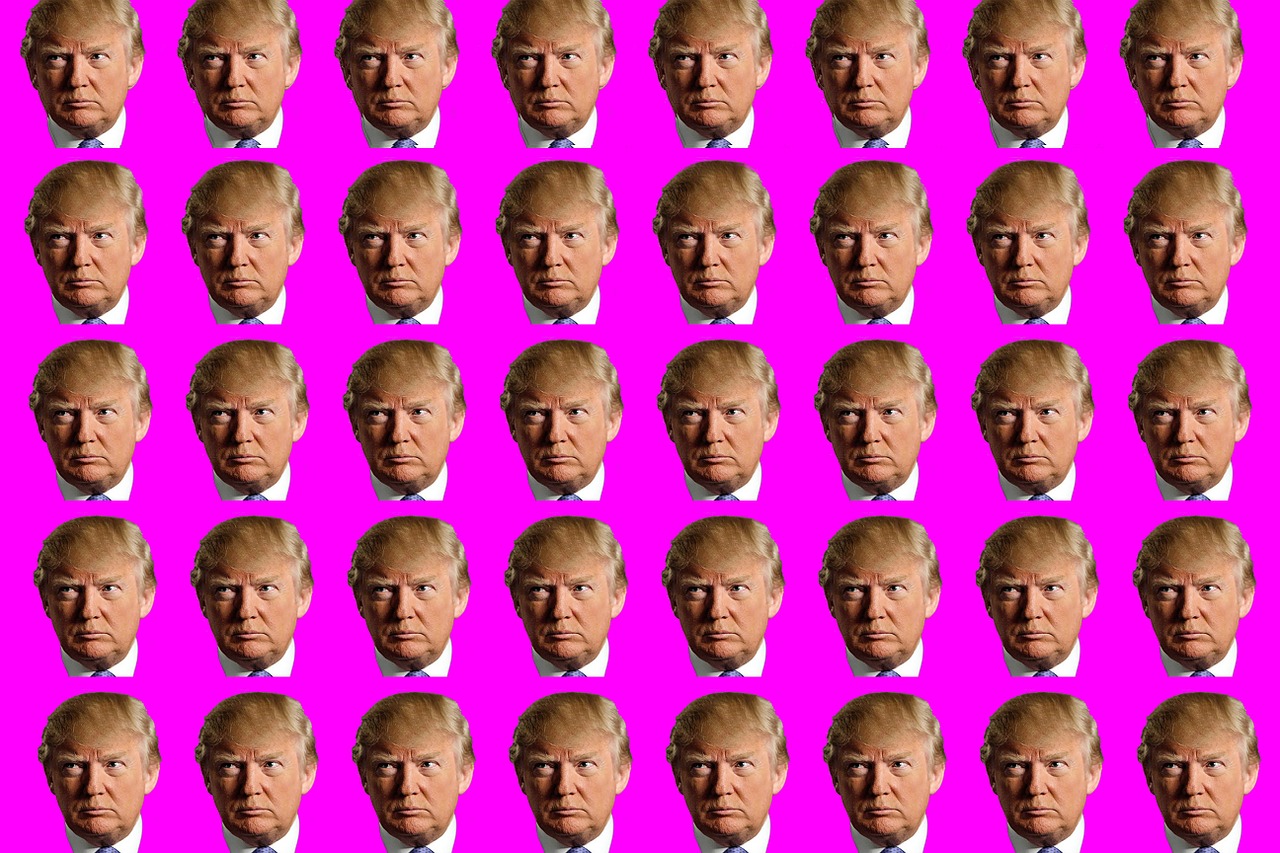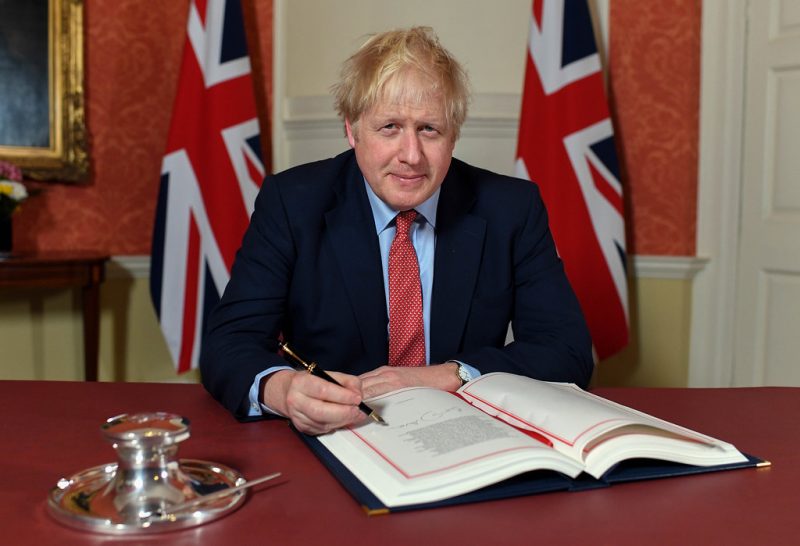Politicians increasingly appear on television shows in roles we wouldn’t ordinarily expect – dancing, cooking, firing prospective employees. Jack Corbett, Matt Wood and Matt Flinders, in a recent article, explore how the social construction of celebrity can help to explain the rise of the ‘celebrity politician’ – most notably President-elect Donald Trump.
Political leaders have always been confronted by a paradox: how to appear above us (i.e. the statesman-like image) so we trust them to govern, while also appearing ‘like us’ (i.e. as ‘normal’ people) so they can claim to represent us. One way they have sought to resolve this paradox, and thus appear both ordinary and apart, is to adopt strategies from within the world of entertainment. As the pioneering work of John Street highlights, historically, this process has tended to work either one of two ways: politicians would surround themselves with celebrities, basking in the glow of their popularity, or else celebrities would step outside the world of show business and become politicians.
Despite the increasingly professionalised nature of contemporary politics and the narrow careerism it has beget, both strategies persist. Indeed, on the surface the rise of Trump would appear to be an archetypal case of the latter move in which celebrity has directly translated into political popularity. It would also perhaps explain why he has been able to defy many of the norms and conventions that govern Presidential election campaigns. The problem is that we have had numerous celebrities who became politicians before (think Schwarzenegger or even Reagan) but none have done it quite like Trump.
Trump the reality celebrity
In a recent article that you can find here we attempted to make sense of this shift. Our argument in a nutshell is that Trump’s version of celebrity come politician stems from the unique combination of a pervasive anti-political climate and the rise of reality TV. In short, Trump is not just any old celebrity turned politician, he is a reality TV celebrity turned politician, and this distinction, made possible by broader shifts in the social construction of celebrity, can help explain why he has been elected in the manner that he has.
The reason why this mix of celebrity and politics, can, in the right hands, be so powerful for voters is that it allows Trump to perform democracy’s oldest trick: to better than us, so he can rule over us, but also like us, so he can understand us.
As a celebrity Trump trades on his wealth and fame which, in turn, allows him to foster an image of himself as a winner (i.e. we are going to win so much we will get sick of winning). It also allows him to claim he alone has a unique formula for success (i.e. the book that initially made him famous: The Art of the Deal) that sets him apart from other candidates.
This, in essence, is the conventional celebrity politician strategy. Those politicians who are not celebrities themselves can still trade on this form of celebrity – think Clinton and her cadre of endorsing singers and actors – but it’s not quite the same as being the real thing.
The problem with this strategy is that appearing apart can alienate the electorate. That is, politicians who pursue this strategy run the risk of being criticised for lacking the common touch, understanding ordinary people and their problems etc. Politicians who surround themselves with celebrities also run the risk of appearing fawning and pathetic (think Tony Blair).
Trump’s race to the bottom
Reality TV stars (or what in the article we term ‘everyday celebrity politicians’) don’t have the same problem because their fame isn’t just derived from their success, it is also built on their essential ordinariness. This means they can be brash, outspoken, make seemingly horrendous gaffs and insulting comments because this is how reality TV works.
It is unscripted and off the cuff. People don’t say what they mean or mean what they say. It has different rules and norms to regular entertainment that encourage people to display their worst virtues. Indeed, this is the main appeal of reality TV: it allows us to see people stoop to their lowest selves. This, in turn, is supposed to render them authentic.
Now, the obvious riposte is that no one actually believes reality TV is unscripted: people aren’t that stupid. We agree. In fact, that is what makes reality TV such a clever political tool in the right hands. Everyone knows there is a script for unscripted entertainment. The expectation is that the performers will do whatever it takes to grab attention. If the conventional celebrity strategy is a race to the top, the reality strategy is a race to the bottom.
The result is a type of anti-politician who stands out in a social context in which mainstream politics is increasingly despised and professional politicians vilified. It is populist in the sense that it panders to the crowd, but its stock in trade is bombast rather than flattery. The desired effect is to leave the audience – whether they are friend or foe – completely unsure of what the protagonist will do next. And, as a result, the worse it gets, the more we want to watch.
The importance of personality
The strategy doesn’t work for everyone. British MP George Galloway appeared on the 2006 version of Big Brother, a move that was met with hostility among sections of the public. Hostility intensified, however, once the show went to air, as the audience did not find his performance as an ordinary person authentic. Rather, his attempts to be more like his fellow contestants were deemed disingenuous and cringe worthy. So, the personality of the performer and the nature of the performance matters (and perhaps Galloway was slightly ahead of his time). And, the strategy seems to work best for those whose background, wealth and appearance marks them out as members of the vilified establishment but who want to distance themselves from it (think Farage and Johnson in the UK).
But, in the hands of a showman like Trump, the effect can be worryingly intoxicating. Indeed, as scary as the prospect of the White House being turned into the set of Presidential Big Brother might be, we defy anyone who isn’t at least slightly intrigued by whether that would make for good television.
—
Note: this post is based on the authors’ article in the British Journal of Politics and International Relations.
About the Authors:
 Jack Corbett is Associate Professor of Politics at the University of Southampton.
Jack Corbett is Associate Professor of Politics at the University of Southampton.
 Matthew Wood is Lecturer in Politics at the University of Sheffield.
Matthew Wood is Lecturer in Politics at the University of Sheffield.
 Matthew Flinders is Professor of Politics at the University of Sheffield and Director of the Sir Bernard Crick Centre for the Understanding of Politics.
Matthew Flinders is Professor of Politics at the University of Sheffield and Director of the Sir Bernard Crick Centre for the Understanding of Politics.









Clinton lost the US election and the EU lost the Brexit referendum because their “establishment” client groups failed to deliver the influence they would in normal times. The EU has spent decades using the “widening and deepening” policy getting politicians of all stripes and all levels (national down to regional) within the mainstream on to the payroll via endless quangos, objectives, initiatives, councils, partnerships etc… That this gravy train was actually paid for by taxpayers is irrelevant, once you’ve got all the mainstream politicians from MPs to senior local politicians on then the money go round should be self-sustaining. Clinton was the “establishment” candidate, she had the backing of the most influential groups, or even if she didn’t have their backing (such as the GOP hierarchy) they weren’t backing Trump either.
Usually these “establishment” clients would have had enough influence on the part of the electorate who do vote to swing it. But this time round the electorate weren’t convinced that any of the gravy was flowing to them. All the populists had to do is point out to enough people that they were paying for the gravy train, but not getting any of it.
Trump isn’t the first to do this we had ronnie reagan and of course sarnie schwarzenegger was governor of california some time ago, you could mention some old prime ministers who achieved fame as warriors in the same breath.
The downfall of the political establishment in the eyes of the electorate is also resulting from the combination of freedom of speech enshrining media’s right to depict politicians for who they are (i.e untrustworthy, self-serving) as much as for what the do (i.e their policies), and masses of people with limited access to education and economic prosperity. US election demonstrated that this moved beyond the reality TV domain. So, the question is whether democracy can benefit from less reality TV broadcasting and/or less reality TV consumption?
When interviewed by the BBC last week, the reality TV champion Jerry Springer said that people who participate in and watch his programme don’t run for the President of the United States. But can he neglect the fact that their vote just mattered a great deal?
That being perceived as a “real deal” decided the election against HRC and in favour of Trump gives another impetus to the debate about the ability of political science to predict and influence political events in addition to explaining them.